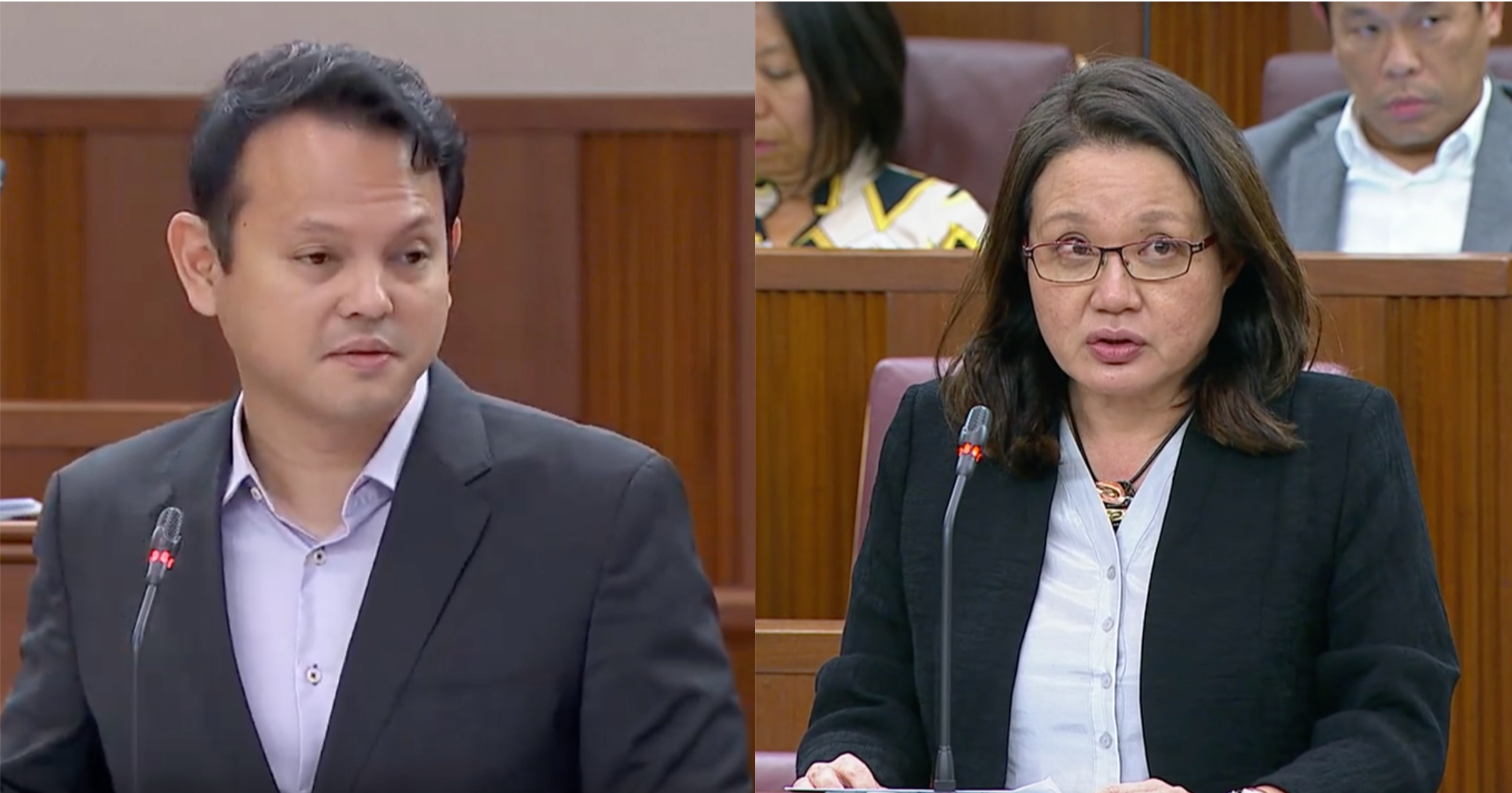In her Budget 2019 speech, Workers' Party Chair Sylvia Lim agreed with Finance Minister Heng Swee Keat's assessment that inequality and social mobility were long-term challenges that Singapore had to tackle.
However, she spoke about threats faced by the workforce in a time of rapid economic and societal change.
How many unsuccessful jobseekers?
First, Lim mentioned the unique vulnerability of the Singapore job market to the coming "Fourth Industrial Revolution".
As a highly open and connected economy, Singapore is more vulnerable than most to job disruption. The government has accordingly tried to prepare workers by investing in skills upgrading and helping them seek employment.
Lim cited the figures provided by the Adapt and Grow Initiative, which helped 76,000 jobseekers find employment from 2016 to 2018.
While Lim said this was "impressive", she questioned if these workers were forced to take a pay cut, and asked for the number of jobseekers who had signed up with the initiative, but were unsuccessful.
Underemployment
Lim next turned to the issue of underemployment. She cited the figure given by Ministry of Manpower (MOM), 3.3 per cent, which referred to workers who are working part-time and would like a full-time job.
This consisted of nearly 73,000 workers, with lower-educated workers more affected.
However, Lim also referred to a 2017 survey conducted by the Ong Teng Cheong Institute of Labour, which decided that underemployment was too complex to be defined by just one criteria.
Instead, it took into account other factors, and targeted working degree-holders who were earning less than S$2,000 per month. Using their methods, they produced an underemployment rate of 4.3 per cent, higher than MOM's figure.
Lim asked if the government could consider improving its measures of underemployment, and said she would address the issue of underemployment in more detail during the MOM Committee of Supply debate to come.
Vulnerable workforce
Continuing on her worker-focused theme, Lim addressed the issue of lower-income residents who lack job security.
She said that her constituents who were employed in the gig economy enjoyed few job benefits, such as paid leave or bonuses, and found it difficult to take time off to attend to family matters.
She also shared an anecdote of one such gig worker who could not pay a traffic fine, and asked if more "compassion" could be shown to these vulnerable workers, for example allowing them to pay the fines in instalments.
PAP MPs also supported helping the workforce
Lim's points were similar to those made by other MPs -- from the PAP.
Jobs seemed to be the common theme of the debate so far, as various MPs spoke on the need for workers to secure meaningful employment.
In her speech, MP Lee Bee Wah of Nee Soon GRC mentioned the plight of older workers, and shared an anecdote of one senior employee who was asked to stay on past retirement, but also take on additional duties and shoulder a 40 per cent pay cut.
She asked if the government could consider "tighter legislation" for re-employment of older workers.
Zainal Sapari, MP for Pasir Ris-Punggol GRC and one of NTUC's Assistant Secretary-Generals, also touched upon the topic of vulnerable workers, and urged them to make use of government-provided training subsidies as a way of moving up the ladder.
Heng Chee How, the Deputy NTUC Sec-Gen and MP for Jalan Besar said that workers had to be put at the "heart" of all they did, and mooted ideas to increase the local workforce by helping caregivers and stay-at-home mothers find flexible jobs to suit their circumstances.
Zaqy: Will discuss more later
In reply, Minister of State for Manpower Zaqy Mohamad, MP of Choa Chu Kang GRC, acknowledged Lim's comments on vulnerable workers, and said that the issue will be discussed in depth later on.
He also spoke on the need to "uplift all segments of the workforce", including ex-offenders and people with special needs to be able to thrive and find employment in a more inclusive society.
Top image adapted from Gov.sg and Channel NewsAsia.
If you like what you read, follow us on Facebook, Instagram, Twitter and Telegram to get the latest updates.
